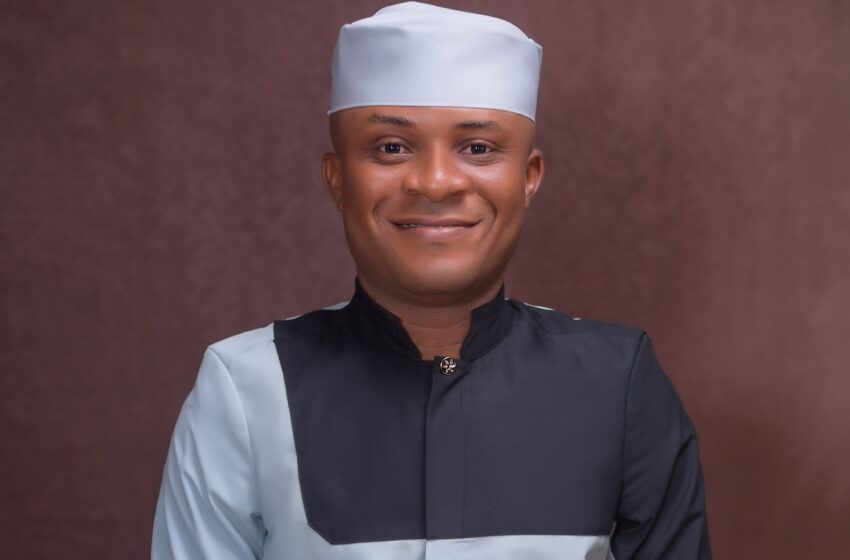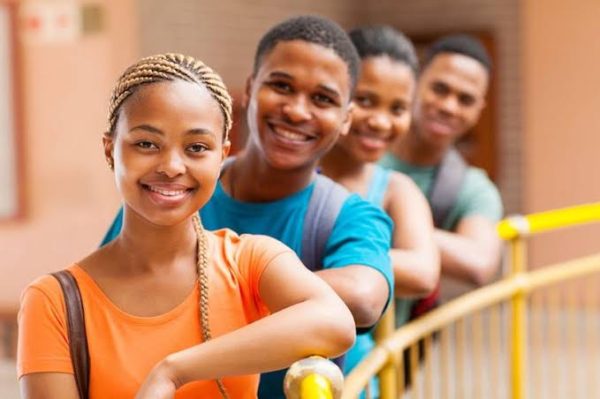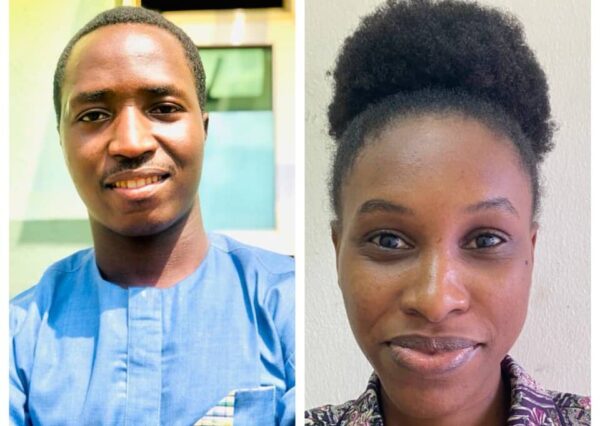CrispNG’s maiden lecture: Older generation using youths as pawns – Busaosowo Bisong

Busaosowo Bisong
Busaosowo Bisong, lawyer and founder of the Busaosowo Foundation, has stated that the older generation is using the youth as pawns to achieve their ends.
Speaking at Crisp Nigeria’s inaugural annual lecture on Saturday, April 17, 2024, Busaosowo raised concerns about the lack of support for youth and their ideas by Nigerian leaders, who fail to provide them with a platform to showcase their prowess despite many promises.
In his lecture titled “Challenges of Building in Nigeria: Perspectives of Young Change Makers,” Busaosowo urged young people to find a way to break through the system or create an alternative system for themselves .
The event, themed “Nigeria of Our Dreams: Are the Youths Involved?”, was organised to celebrate the International Youth Day and featured a lineup of notable speakers, including former Minister Barr. Solomon Dalung, Aisha Wakaso, Prof. Luke Anorue, Dr. Ambrose Igboke and Halima Layeni, who contributed to the discussion on youth involvement in nation-building.
Gleanings from the lecture
“I sincerely believe that Nigeria can work for all of us. This is a statement of faith and hope that I hold dear. The reason I have this standpoint is because, from my experience, I have had the opportunity to meet some of the most courageous young people across this nation—young people who are setting up free sickle cell clinics where the government has none, others who are establishing free schools for vulnerable children, and those taking action to ensure that businesses thrive. I’ve seen a lot that inspires hope.
“As a young person also taking action to ensure that Nigeria becomes a place we are proud to call home, I know how difficult it is to build in this country.
“From my experience, the foremost challenge that young change makers face is the social construct that perpetually limits young people in Nigeria.

“The generation before us does not entirely believe that young people should be at the forefront of national development. They may say it and host events about it, but when the opportunity arises to take action that would provide young people with a platform to express their potential, the game changes.
“As a young person, I was told in primary five that we are the leaders of tomorrow. Today, more than two decades later, we still do not see that promise coming to pass, largely because the system we operate in does not commit to creating platforms for young people to express themselves.
“Many young people in Nigeria have had to find a way to break through the system or create an alternative system for themselves. This has been the story for many young people running non-profit organisations in this nation—trying to create impact while the system that should support them becomes a hindrance and a stumbling block to their success. This leaves them with two options: give up or create an alternative for themselves.
“The fact that the older generation still believes that today’s youth, even when we have shown beyond reasonable doubt that we have the heart, potential, and courage to drive change, should not be given the opportunity is disheartening.
What we do at Busaosowo foundation
“At the Busaosowo Foundation, we are mobilising communities and schools to take action to prevent drug abuse among young people. In my experience, when approaching policymakers, government agencies, and leaders responsible for developing policies and strategies to address drug abuse, they often agree with our proposals. However, the actions they take afterward send a contrary message.
“For example, during one of our campaigns in a Nigerian state, we were working with schools and communities to create systems to prevent drug abuse among young people. We visited key policymakers, presented our ideas and strategies, and were warmly received. However, two months later, during the election season, the same political leaders who had committed to addressing drug abuse were giving young campaign workers marijuana, tobacco, cigarettes, and alcohol on the campaign grounds. This shows that the older generation is using us as pawns to achieve their ends, even at the risk of destroying our lives.
“The alternative is for young people to recognise that as long as Nigeria’s current structure remains, the responsibility to create an alternative future rests on our shoulders. If we are waiting for someone at the top to do something to make life easier for us, we have a track record of more than five decades showing that it is unlikely to happen.
Lessons learnt
“In over 6 years of running the Busaosowo Foundation the first lesson I’ve learnt is the power of believing in your ideas. Another challenge we face as young people is that when we present bold ideas, our leaders often think they shouldn’t come from us. They try to discredit or dismiss them.
“As a young person, you must learn to believe in your ideas. If you have decided to pursue something, you must sit down with yourself and ask: How viable is this idea? How willing and committed am I to ensuring it becomes a reality?
READ ALSO:
CrispNG’s maiden lecture: Nigeria needs a Ministry of Men Affairs – Halima Layeni
CrispNG’s maiden lecture: How to solve Nigeria’s trust problem — Solomon Dalung
All you need to know about MTN Foundation’s 2024 MUSON scholarship programme
“When I began the Busaosowo Foundation, people often asked me, “What is a lawyer doing with drug abuse prevention? You should be in court. This should be something a doctor or someone in the medical field is doing.” But I believed and still believe in the idea that gave birth to the Busaosowo foundation. I’m committed to learning, creating alternatives, and ensuring this idea comes to fruition.
“When we started, we didn’t have the human resources, knowledge, or finances to drive our goals, so I began researching. I reached out to international organisations to learn how to solve the problem of drug abuse prevention. After three years of doing that, I decided to contribute to solving the first problem I encountered, which was the absence of resources. That’s when we published the first local content guide on drug abuse prevention.

“You will face challenges as you take steps as a young person—whether it’s starting a business, a non-profit organisation, or simply trying to make your life better. To succeed or increase your chances of success, you must believe in your ideas.
“The second lesson I’ve learned is that big dreams and big ideas can be broken into smaller pieces. As you achieve each piece, you are ultimately achieving the complete dream. What you need to do is find opportunities to achieve your dreams in smaller parts.
“For instance, at Busaosowo Foundation, we have a big goal of setting up a center for drug abuse prevention, which will take a lot of resources. To begin taking action and testing the viability of our ideas, we are now working with schools to establish smaller centers within them to achieve the same purpose. As we do this, we are developing our capacity, building track records, and testing our ideas. So, break down your ideas into manageable pieces and work toward achieving them one step at a time.
“The third lesson I’ve learned that will help you overcome the challenges of building in Nigeria is to develop your capacity for mobilisation and collaboration. One of my greatest strengths as a young person is in mobilisation and collaboration.
“When people see what we do at Busaosowo Foundation, they often can’t believe that the same group of people they see is producing these results. The secret is that we have developed strength and capacity in both collaboration and mobilisation.
“For example, we recently started implementing a programme that aims to address the absence of accurate information fueling drug abuse among young people. We mobilised other young people and trained them to become drug abuse prevention ambassadors. These young people don’t need to be affiliated with our organisation or be in the same location; they just need the passion to learn and the guidance to have the same conversations with young people in their communities. On August 16, Busaosowo had its first session with a group of young people in Rwanda, made possible by mobilisation and collaboration.
The final lesson is to learn to tell your story. Because of the social construct I mentioned earlier, where the generation before us often dismisses ideas from young people, it is your responsibility to tell your story. If people don’t believe you, there’s a way to persist in something and keep pushing it. As time goes on, your persistence will attract credibility. So, learn to tell your story.
“If you’re a young person taking any action—no matter how big or small—to make life better for yourself, your community, or the nation at large, you need to share what you’re doing. Show the world that this is the action you’re taking and the results it’s bringing.
“This isn’t about self-promotion, as we might say in our local parlance. It’s about creating a counter-culture to what is available. As you tell your story, you’ll inspire other young people to take action. The more young people take action, the easier and faster it will be for us to change our realities as Nigerians.”




